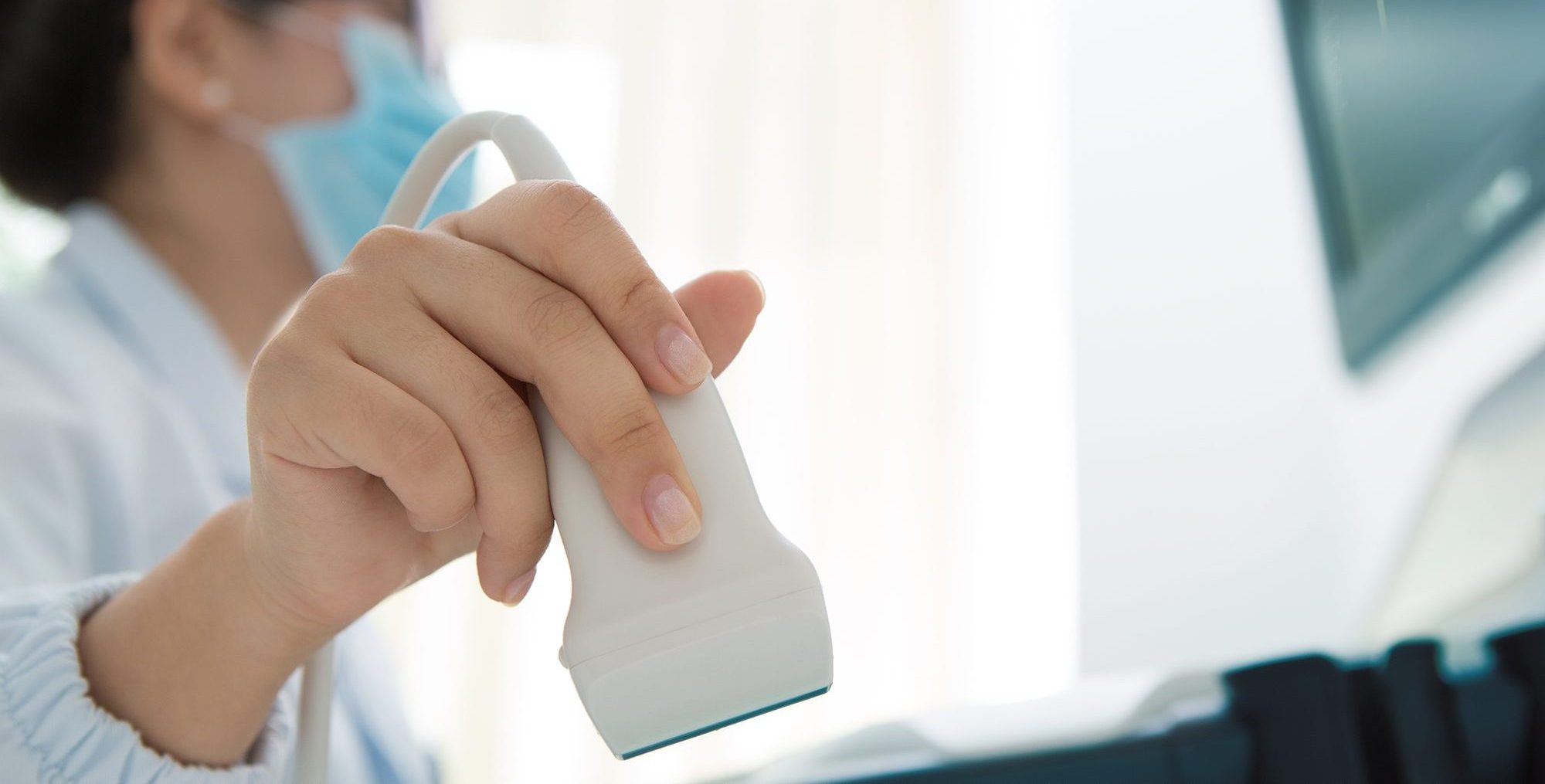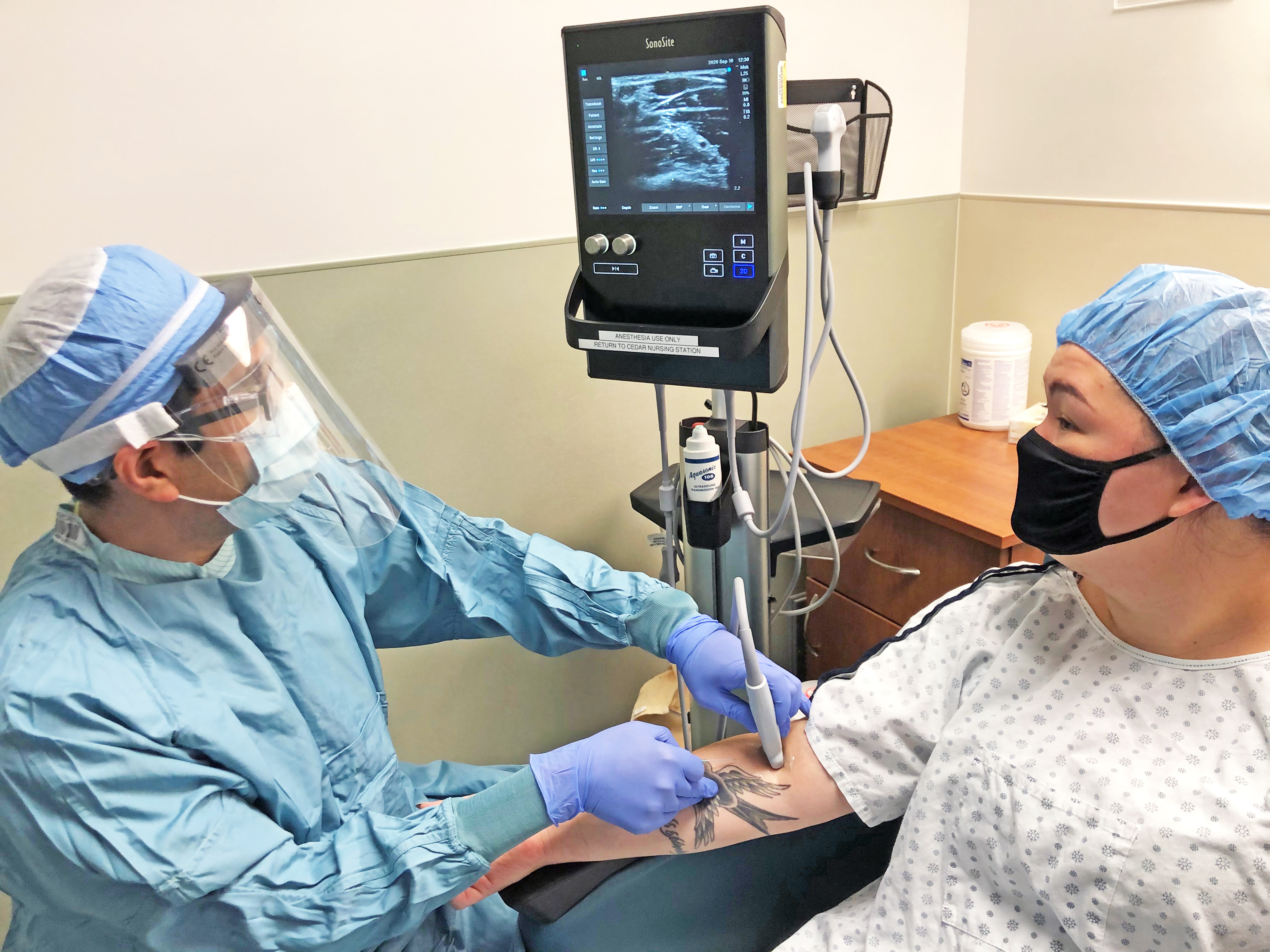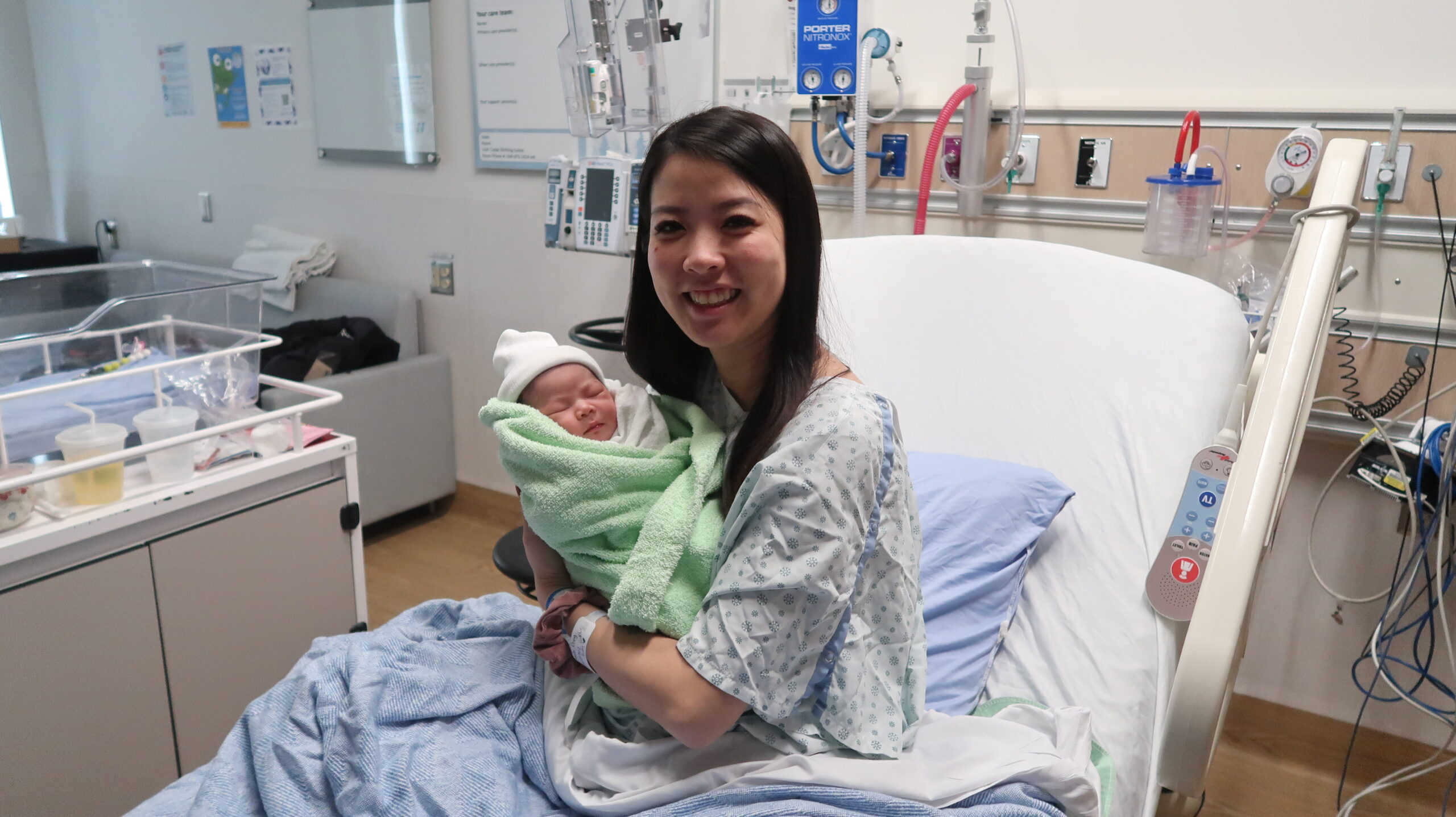
Portable ultrasound machines have enabled clinicians to treat patients faster, more accurately, and in a non-invasive way at the point of care – wherever a patient is being treated – without relying on trips to the Radiology or Imaging department. Today, Point of Care Ultrasound (POCUS) or “bedside ultrasounds” are becoming the standard of care in most cases.
However, it is imperative that specialists not only learn the fundamentals but also continue to practice and retain their skills and abilities so that ultrasounds can be used with confidence when needed for patient care. Now, even more than that, healthcare teams must master these complex skills with bulky PPE gear in place in response to the COVID-19 pandemic.
To combat these new challenges, an anonymous community donor has donated $38,000, towards the purchase of the SonoSim Training System – an educational training program helping BC Women’s Hospital staff to refine their POCUS skills.
“I am personally and professionally very grateful for this donation. COVID-19 has added significant complexity to our management of women who are/become ill during labour. Differentiating between the most common diagnoses affecting the heart and lungs has typically relied upon a good history and physical examination – but this has been made less useful during COVID due to PPE constraints.
In addition, diagnosis of early lung disease is crucial to women at our hospital, as it facilitates transfer to a higher level of care with the intent of preventing critical illness. Point-of-care ultrasound is an ideal tool for the diagnosis of cardiopulmonary disease. With the SonoSim education system, we are finally going to have the ability to learn and practice on a simulator, so we are better prepared for use in patients.” – Dr. Roanne Preston, MD FRCPC, Professor and Head, UBC Department of Anesthesiology, Pharmacology & Therapeutics
Clinicians and specialists at BC Women’s Hospital perform more than 24,000 ultrasound exams each year, two-thirds of which involve advanced skills for diagnosing potentially life-threatening prenatal complications in expecting mothers and their babies. Beyond just OB/GYN uses, ultrasound exams can help diagnose various conditions involving the heart, lungs, kidneys, bladder, intestines, and help find veins and arteries.

Pictured above: Dr. Sadiq Abdulla, Obstetrics Anesthesiologist at BC Women’s Hospital, uses bedside ultrasound to facilitate the placement of an IV, while wearing COVID-19 PPE. The new SonoSim Training System will be an important educational tool to help clinicians and specialists continue to hone their skills and remain confident in their abilities to provide exceptional care to women.
The new SonoSim Training System provides a safe, educational environment to allow the talented medical teams at BC Women’s Hospital to continue practicing their ultrasound skills and provide valuable information to guide future patient care practice innovation. Thanks to the generosity and ongoing support from our donors, this new technology helps ensure women receive the highest quality healthcare available. Your philanthropic impact makes this possible and serves every patient and family who will benefit from the resulting ultrasound exams and diagnoses.
STAY ENGAGED
- Read more about how donor-funded Virtual Health Technology is helping healthcare staff continue providing specialized, compassionate healthcare.
- Learn more about our COVID-19 Fund: Hospital + Staff and how your donations can provide direct support to frontline healthcare workers.
- Give today to make an impact on the emerging needs of BC Women’s staff, women, families, and their communities.
BC Women’s Health Foundation is BC’s largest non-profit organization dedicated to advancing the full spectrum of women’s health. The information shared is intended to educate, inform, and point readers to credible sources. It is not intended to substitute professional medical advice.



